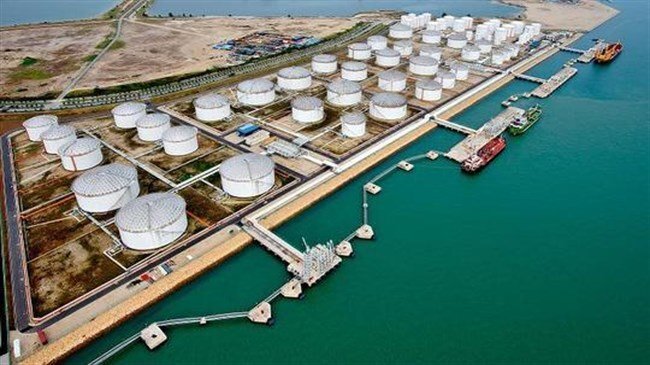Iran expected to have a strong comeback to oil market: report

TEHRAN - Iran is expected to have a strong comeback to the global market in case the nuclear deal is revived and the U.S. sanctions on the country are lifted, Bloomberg reported on Thursday.
According to the report, considering the capacity of Iran’s offshore oil storages, the Islamic Republic will be able to inject millions of barrels of oil into the market as soon as the sanctions are lifted, without the need for boosting the current level of production.
Asian countries including South Korea are likely to be among the first in line to ship in Iranian cargoes.
Bloomberg puts the estimation of the crude oil stored at Iranian stationary tankers at 65 to 80 million barrels, citing the data intelligence firm Kpler.
About four-fifths of the stored crude is condensate, a super-light oil that’s a by-product of natural gas extraction. The overall Iranian volume is higher if crude that’s already in transit is included, the report said.
Oil markets are tracking the possible return of official Iranian flows just as benchmark Brent topped $100 a barrel with the outbreak of conflict in Ukraine. An Iranian deal may just be near: there has been significant progress and the sides are close to a possible agreement if some detailed issues are resolved, according to U.S. State Department spokesman Ned Price. A breakthrough would pave the way for U.S. sanctions on Tehran’s oil to be lifted.
While insurance and finance matters may take time to sort after any nuclear deal is agreed, the Iranian oil held in tankers indicates these barrels can be shipped immediately once sold, according to Anoop Singh, head of East of Suez tanker research at Braemar ACM Shipbroking Pte in Singapore.
“We think a lot of that will flow to South Korea,” Singh said. “And that may in future also hit South Korean imports of naphtha and light U.S. crude.”
Iran is likely to win back customers due to its high-quality crude oil and relatively cheap pricing, according to traders. While prices will be re-negotiated, the Iranian variety is typically sold at about $2 a barrel lower than the comparable Qatari condensate, they said.
Although China has taken significant volumes of Iranian crude despite the sanctions, the world’s biggest oil consumer doesn’t have many so-called splitter units that use condensate as feedstock. With the absence of South Korean buyers, just six condensate cargoes were exported to Venezuela in 2020-2021, said Homayoun Falakshahi, senior commodity analyst at Kpler.
